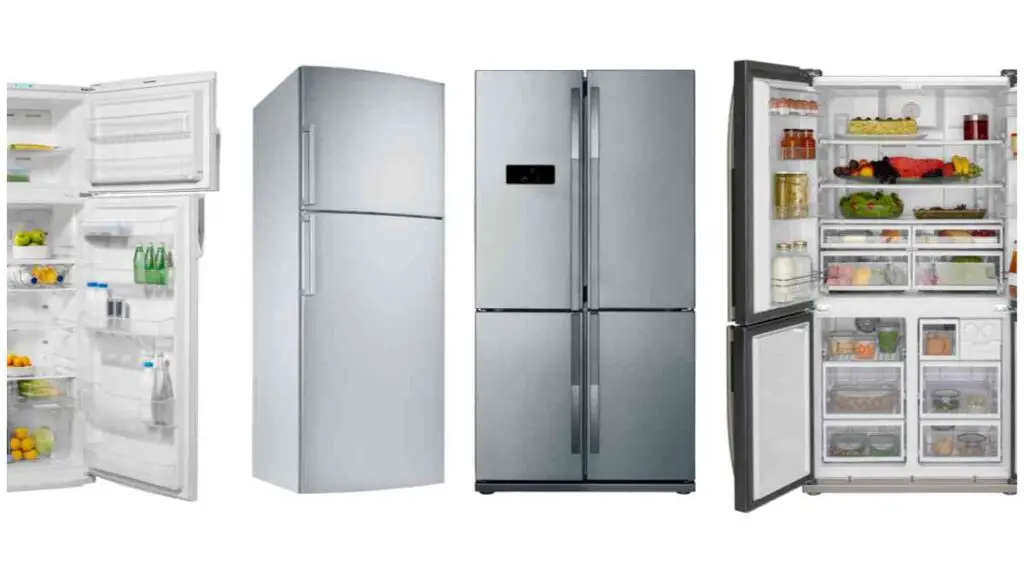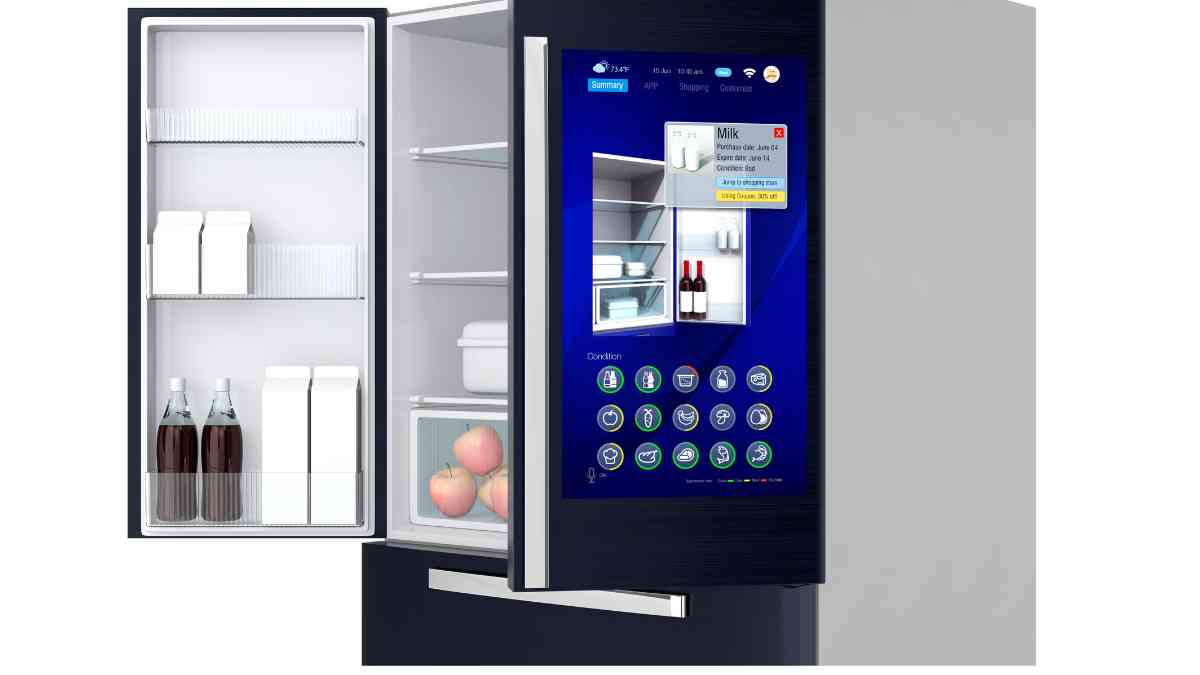Smart refrigerators are becoming increasingly popular in modern kitchens. These innovative appliances offer advanced features like temperature control, inventory management, and even the ability to make grocery lists. However, along with these conveniences, concerns about privacy and security have arisen, especially regarding the presence of cameras in smart refrigerators.
In this article, we will explore the privacy implications associated with smart refrigerators and provide insights, tips, and anecdotes to help users protect their privacy effectively.
| Takeaways |
| Privacy concerns are associated with smart refrigerators. |
| Users should research brands and models before purchase. |
| Reading privacy policies and terms of service is important. |
| Enabling two-factor authentication adds an extra layer of security. |
| Regular software updates help mitigate security vulnerabilities. |
| Changing default passwords and using strong ones is crucial. |
| Users should be cautious with third-party apps and integrations. |
| Manufacturers should prioritize encryption and security measures. |
| User consent and control over data are essential for privacy. |
| Trust and transparency are vital for user satisfaction. |
2. How Do Smart Refrigerators Work?
Before delving into the privacy concerns, it’s essential to understand how smart refrigerators work. Smart refrigerators are equipped with various sensors, cameras, and connectivity features. These devices connect to the internet and rely on Wi-Fi to communicate with other smart devices or applications installed on smartphones.
Smart faucets are becoming increasingly popular in homes, offering convenience and water efficiency. Explore their pros and cons to make an informed choice for your kitchen or bathroom.
3. Privacy Concerns with Smart Refrigerators

3.1. Data Collection and Storage
One of the primary concerns with smart refrigerators is the collection and storage of data. Cameras and sensors in these appliances can gather information about the contents of your refrigerator, including the types of food you have and their expiration dates. This data can be beneficial for inventory management but raises privacy concerns, as it provides insight into your lifestyle, eating habits, and potentially sensitive information.
| Privacy Concerns | Explanation |
| Data Collection | Smart refrigerators collect information about the contents, types of food, and expiration dates. |
| Lifestyle Insights | The data collected can reveal personal habits and preferences. |
| Sensitive Data | User privacy may be compromised when sensitive information is accessed or shared. |
3.2. Hacking and Security Risks
Another significant concern is the potential for hacking and security breaches. As smart refrigerators are connected to the internet, they become points of vulnerability. Hackers could potentially gain access to your appliance and even your home network, leading to unauthorized access to your personal information and surveillance of your kitchen.
Maintaining your smart fridge is crucial to its performance. Learn essential tips to keep your appliance running smoothly and protect your privacy.
| Security Risks | Explanation |
| Vulnerability | Smart refrigerators connected to the internet are prone to hacking attacks. |
| Unauthorized Access | Hackers could gain access to personal information and even control appliances. |
| Surveillance | Remote access to cameras could compromise privacy and security. |
3.3. Potential Privacy Breaches
Smart refrigerators, like any other connected device, are susceptible to privacy breaches. If the manufacturer’s security measures are inadequate, unauthorized individuals or organizations may gain access to the gathered data, potentially resulting in identity theft or targeted advertising.
| Privacy Breaches | Explanation |
| Inadequate Security | Lack of robust security measures can lead to unauthorized access. |
| Identity Theft | Theft of personal information from smart refrigerators can result in identity theft. |
| Targeted Advertising | User data can be exploited for personalized advertising purposes. |
3.4. User Consent and Control
Concerns also arise regarding user consent and control over the data collected by smart refrigerators. Users should fully understand and consent to the collection and use of their personal data by the appliance manufacturer. Additionally, they should have sufficient control over their data, being able to manage permissions and revoke access when desired.
| User Consent and Control | Explanation |
| Informed Consent | Users should provide consent after understanding data collection practices. |
| Data Management | Users should have control over their data and be able to manage permissions. |
| Revoking Access | Ability to revoke access to data when desired is crucial for user control. |
4. Privacy Safeguards and Solutions
To address the privacy concerns associated with smart refrigerators, manufacturers and users can implement various safeguards and solutions.
Efficient drainage systems are essential for a well-functioning home. Discover what you need to know about maintaining your household systems for a comfortable living environment.
4.1. Encryption and Security Measures
Manufacturers should prioritize encryption and robust security measures to protect user data from unauthorized access. By implementing strong encryption protocols and regularly updating security features, the risk of hacking incidents can be significantly reduced.
4.2. Privacy Settings and Permissions
Smart refrigerators should provide users with granular privacy settings, allowing them to choose which data to share and with whom. Additionally, clear instructions should be provided to guide users in setting up secure passwords and managing their privacy preferences.
4.3. Regular Software Updates
Both manufacturers and users should prioritize regular software updates. These updates often include security patches and bug fixes that address potential vulnerabilities. By staying up to date with the latest firmware, users can minimize the risk of privacy breaches.
4.4. Best Practices for Users
Users should also follow best practices to enhance their privacy when using smart refrigerators. These include:
- Researching Brands and Models: Before purchasing a smart refrigerator, users should research the manufacturer’s reputation for security and privacy practices.
- Reading Privacy Policies and Terms of Service: Understanding how user data is collected, stored, and shared is crucial. Reading the privacy policy and terms of service can provide valuable insights.
- Enabling Two-Factor Authentication: Adding an extra layer of security through two-factor authentication can significantly reduce the risk of unauthorized access.
- Keeping Software and Firmware Up to Date: Regularly updating software and firmware ensures that the appliance has the latest security features and patches.
- Changing Default Passwords and Using Strong Ones: Default passwords may be easily guessed by hackers. Changing the password and using a strong combination of characters is essential for protection.
- Being Cautious with Third-Party Apps and Integrations: Users should only install trusted applications and carefully evaluate the permissions requested by these apps.
Voice-controlled devices like Alexa are transforming kitchens. Delve into a detailed look at how they can control various kitchen appliances, enhancing convenience and efficiency.
5. Real-Life Examples of Privacy Incidents
To understand the gravity of privacy concerns with smart refrigerators, let’s examine a few real-life examples:
5.1. Security Breach at Family Manor Inc.
Family Manor Inc., a renowned smart appliance manufacturer, fell victim to a security breach in 2019. Hackers gained unauthorized access to the company’s database, compromising user data from thousands of connected appliances, including smart refrigerators. This incident highlighted the importance of robust security measures and regular data audits.
| Incident | Key Takeaways |
| Security Breach at Family Manor Inc. | Even reputable manufacturers can fall victim to security breaches. |
| Importance of Robust Security Measures | Stringent security protocols are essential to protect user data. |
| Regular Data Audits | Consistent monitoring helps in identifying and addressing security vulnerabilities. |
5.2. Unauthorized Access in SmartFridge Co.

SmartFridge Co. faced a serious privacy incident when it was discovered that some of their smart refrigerators had been compromised by hackers. The attackers accessed the cameras and audio capabilities of these appliances, breaching users’ privacy. This incident emphasized the need for enhanced security features and user awareness.
Preventing bathroom mold is crucial for a healthy home. Learn about the importance of preventing bathroom mold and maintaining a clean, safe environment for you and your family.
| Incident | Key Takeaways |
| Unauthorized Access in SmartFridge Co. | Security vulnerabilities can lead to unauthorized access and breach of privacy. |
| Enhanced Security Features | Manufacturers should improve security measures to prevent such incidents. |
| User Awareness | Educating users about potential risks and privacy settings is crucial. |
5.3. User Information Leakage at FreshHub Corp.
FreshHub Corp., a smart kitchen appliance brand, faced a privacy controversy when it was revealed that they were sharing users’ personal information with third-party advertisers. This incident underscored the importance of carefully reviewing privacy policies and terms of service to understand how user data is utilized.
| Incident | Key Takeaways |
| User Information Leakage at FreshHub Corp. | Manufacturers should adhere to transparent data usage practices. |
| Reviewing Privacy Policies and Terms of Service | Users need to be aware of how their data is shared and used. |
| Trust and Transparency | Building trust requires clear communication and responsible data handling. |
5.4. Breach of Trust in SmartKitchens Ltd.
SmartKitchens Ltd. faced a breach of trust when it was discovered that they had been using the cameras in their smart refrigerators to collect images for targeted advertising purposes. This revelation resulted in widespread backlash and a significant decline in customer trust. It serves as a stark reminder of the importance of respecting user privacy and obtaining proper consent for data collection and usage.
| Incident | Key Takeaways |
| Breach of Trust in SmartKitchens Ltd. | Violating user privacy can have severe consequences for businesses. |
| Importance of Consent and Transparency | Proper consent and transparent practices are paramount for trust. |
| Respecting User Privacy | Safeguarding user privacy should be a priority for manufacturers. |
6. Expert Tips to Protect Your Privacy
To ensure your privacy is safeguarded when using smart refrigerators, here are some expert tips:
6.1. Research Brands and Models
Before purchasing a smart refrigerator, conduct thorough research on different brands and models. Look for manufacturers with a reputation for prioritizing security and privacy.
6.2. Read Privacy Policies and Terms of Service
Carefully read the privacy policies and terms of service provided by the manufacturer. Understand how your data will be collected, stored, and used.
6.3. Enable Two-Factor Authentication
Add an extra layer of protection by enabling two-factor authentication. This will require an additional verification step whenever accessing your smart refrigerator remotely.
6.4. Keep Software and Firmware Up to Date
Regularly update the software and firmware of your smart refrigerator. This ensures that you have the latest security patches and bug fixes.
6.5. Change Default Passwords and Use Strong Ones
Change the default password of your smart refrigerator and use a strong, unique password. Avoid using generic or easily guessable passwords to enhance security.
6.6. Be Cautious with Third-Party Apps and Integrations
When integrating third-party apps or services with your smart refrigerator, exercise caution. Only install trusted applications and carefully review the permissions they request.
7. Conclusion
Smart refrigerators undoubtedly offer convenience and advanced features that enhance our kitchen experiences. However, it is essential to be aware of the privacy concerns that come with these appliances, especially those equipped with cameras. By understanding the data collection and storage processes, prioritizing security measures, and following best practices, users can protect their privacy effectively.
Manufacturers also play a significant role in addressing privacy concerns by implementing strong security protocols, providing granular privacy settings, and respecting user consent and control over data. Together, users and manufacturers can ensure that the benefits of smart refrigerators are maximized while privacy and security are not compromised.
Further Reading
Here are some additional resources for further reading on the topic of smart refrigerators and privacy:
- Consumer Reports: Smart Refrigerators and Privacy
This Consumer Reports article provides insights into the privacy concerns associated with smart refrigerators and offers tips on protecting your privacy when using these appliances. - Privacy Implications of Smart Appliances
This research paper explores the privacy implications of smart appliances, including smart refrigerators. It examines the data collection and privacy challenges associated with these devices and discusses potential solutions. - A Framework for Privacy Management in Smart Refrigerators and IoT Devices
This academic article proposes a framework for privacy management specifically focused on smart refrigerators and other IoT devices. It provides insights into privacy concerns and offers recommendations on privacy safeguards.
FAQs
What are the main privacy concerns with smart refrigerators?
Privacy concerns associated with smart refrigerators include data collection and storage, hacking and security risks, potential privacy breaches, and user consent and control over collected data.
How can I protect my privacy when using a smart refrigerator?
To protect your privacy, you can implement measures such as researching brands and models, reading privacy policies, enabling two-factor authentication, keeping software up to date, using strong passwords, and being cautious with third-party apps and integrations.
What are some potential risks of hacking incidents with smart refrigerators?
Hacking incidents can lead to unauthorized access to personal information, control of appliances, and even surveillance through remote access to cameras. These incidents can compromise privacy and security.
How can manufacturers enhance privacy protection in smart refrigerators?
Manufacturers can prioritize encryption and security measures, provide privacy settings and permissions for users, ensure regular software updates, and offer transparent privacy practices to strengthen privacy protection.
Are there any real-life examples of privacy incidents with smart refrigerators?
Yes, there have been incidents of security breaches, unauthorized access to cameras, user information leakage, and breaches of trust involving smart refrigerator manufacturers. These incidents highlight the importance of robust security measures and responsible data handling.

Hellen James is the author of the blog and a licensed plumber with over 15 years of experience. She shares her knowledge and experience in plumbing and drainage through insightful and informative articles

